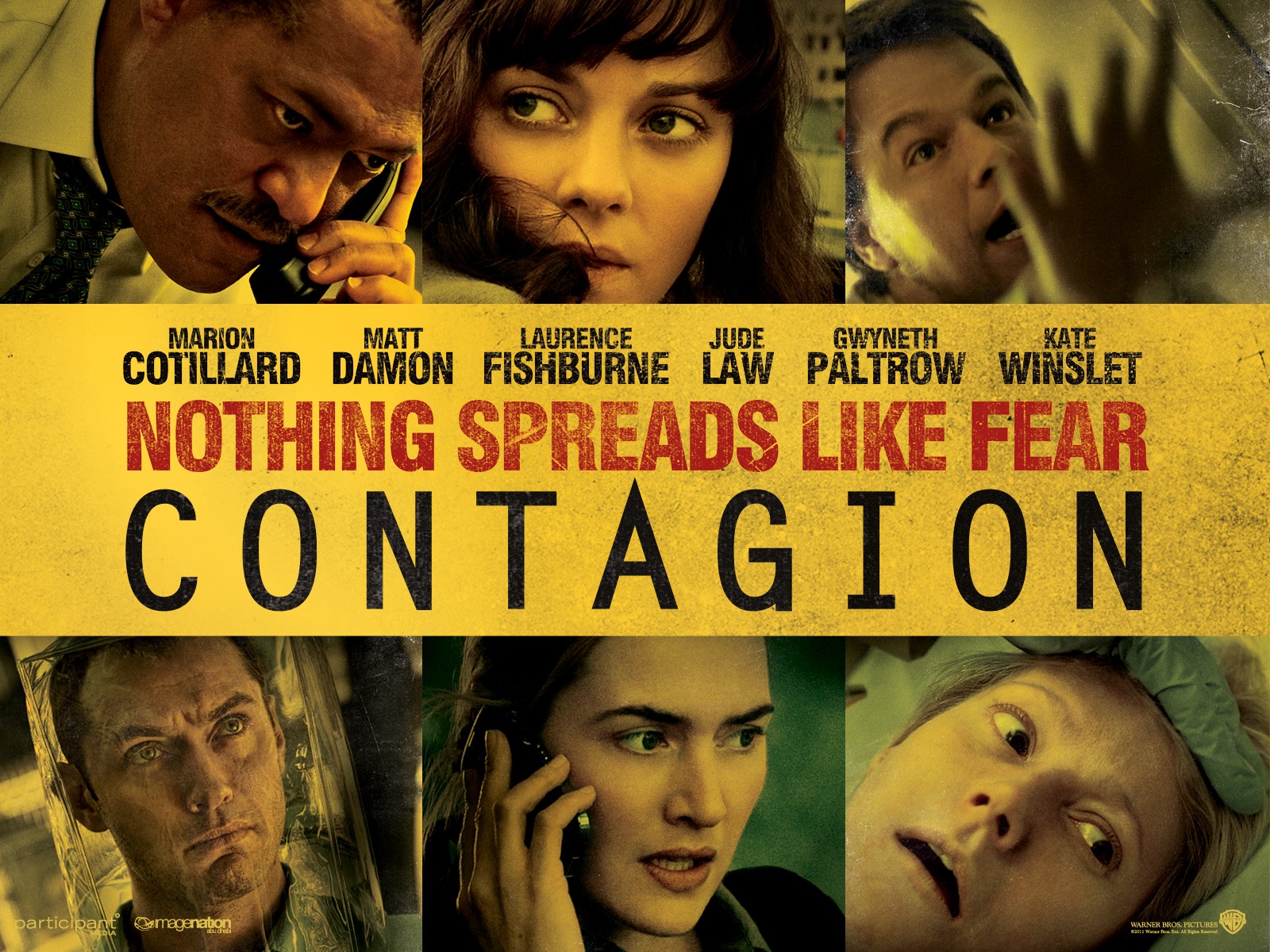In January 2020, Netflix released a documentary series entitled Pandemic: How to Prevent an Outbreak, coinciding with the outbreak of COVID-19; I started watching the series under the impression it was about this pandemic. As it turned out, it was filmed and produced before the coronavirus outbreak; ironically, in it, scientists were warning us of pandemics and discussing what they do every day to prevent them!
Pandemic is about the influenza viruses with all their different strains, such as the swine flu and the avian (bird) flu. The series presents how doctors treat flu patients and the measures that scientists take to prevent outbreaks. These measures include vaccinating birds, tracing migratory birds, and testing them if necessary to track diseases, as well as testing bats! Testing animals is important because some viruses are of zoonotic origin; that is, they are transmitted from animals to humans.
Preventing an outbreak is of paramount importance, but once it occurs, limiting the exposure of several people to it is also important. The series discusses the Ebola outbreak and the efforts of the World Health Organization (WHO) to contain this deadly virus, including sealing off the area of the outbreak to prevent the spread of the virus to nearby areas, because one person is enough to start a crisis.
Safety First
One of the most important measures out there to protect people from disease is vaccination. Up until today, however, creating a vaccine for some diseases is still challenging. As a result, influenza has been with us for a long time and still kills many people every year.
The series shed light on efforts by scientists in Distributed Bio, a group of researchers on a mission to create what they call “a universal vaccine”. They have been funded by the Gates Foundation so that they could make their discovery for free. So far, they have tested their findings on pigs and the results are satisfactory; still, more years of research and testing are required.
Watching the series, which was produced before the coronavirus pandemic and was just released a month after its first appearance you realize that, although the outbreak was a surprise for all of us, it was not so for the scientists. It has always been a fear and a reality to deal with; the series was a warning that came just a little too late.

Missed Signals
If you think that this series was the only warning of outbreaks, you are so mistaken. In a now-famous 2015 Ted Talk by Bill Gates, he warned that the greatest threat to humanity is something that cannot be seen by the naked eye and not an atomic war, because disease is capable of claiming far more souls than war.
If you do not believe this, check how many people died during World War I and how many died because of the Spanish flu, which broke out right after it? Bill Gates said in the Talk that Ebola, luckily, did not spread, because by the time people became quite infectious, they were unable to get out of bed, which limited their ability to walk around and infect others. He said we might not be so lucky with other diseases where people are infectious but feel fine and go about their lives normally, unwittingly spreading the disease. He gave the example of airports; does this sound familiar?
The Ted Talk of Bill Gates was not the only warning that was issued some time ago. In 2011, the movie Contagion warned of a nightmare similar to ours where a traveler unwittingly spreads a deadly virus everywhere. So, everyone you meet becomes your worst enemy and every surface you touch becomes a threat to your health. No wonder this movie has become so popular nowadays.

Are We There Yet?
With diseases like SARS, Ebola, and Zika emerging in recent years, the world has been forewarned. Yet, despite technological advances, the coronavirus has taught humanity an important lesson; it is like what Bill Gates said: “The next outbreak? We are not ready.”
It is the 21st century and we had all thought that battling diseases that disrupt life and challenge health systems was something of the past. No one has imagined that we will witness horrors similar to those witnessed by past generations with the Cholera and the Spanish flu. The coronavirus has proven to us that we are not ready; there are several lessons that we need to learn and pass on to future generations to ensure that pandemics can be contained efficiently in the future with minimal losses.
The Road Ahead
Human health goes way beyond health care and thinking about what we can do to improve hospitals and ensure doctors are well-trained to fight diseases, all of which is critical, but is not enough to prevent pandemics. We need to be more “vigilant”; as in Pandemic, there is a huge importance to testing animals. We need to ensure that sick animals do not come in contact with people; this includes keeping an eye on illegal animal trade, which was how the coronavirus started. Animals and birds also need to be regularly vaccinated; this way, we protect ourselves from zoonotic diseases.
To fight pandemics, we need to understand them, and that is not possible without “research”; what triggers certain pandemics, how they start, and how they affect people. Studying pandemics of the past can lead to more understanding of the future. Nowadays, many drugs are being tested to see if they can cure people from the coronavirus; also the BCG vaccine (Bacillus Calmette–Guérin vaccine), which protects people from tuberculosis (TB), is being tested because there are claims that BCG vaccinated people are more protected from the new coronavirus. The BCG vaccine study is still ongoing and the claims about its effectiveness with the coronavirus have neither been supported, nor refuted yet.
Throughout, “vaccination” has been a great element in maintaining human health. Due to vaccines, smallpox has been completely eradicated; polio is also almost completely non-existent. Vaccinations are the only way we can ensure that past diseases are not in our present or future. Nowadays, a vaccine for the coronavirus seems to be our only hope to return to normal.
The process of creating vaccines takes time and the challenge of creating a vaccine fast may lead to speeding up the process in the future. Will the process of creating vaccines differ in the future? Maybe, there will come a time when scientists can create vaccines for diseases that we have not yet seen. When it comes to science, the sky is the limit. Vaccines improve lives, has always done so, and there is no reason to doubt that they will continue to do so in the future.
No matter what we do, it is a fact of history that pandemics find their ways to us. So, if we do our best to prevent one and we fail, we need to be aware how to respond and “detect”. Training doctors, nurses, and everyone in the healthcare system to detect and report suspicious cases, and how to deal with them in hospitals, is very important. The same applies for how to properly trace and find cases to limit the spread.
At the time of the Spanish Flu, people had no way of knowing the effect of the pandemic on the whole globe. We have that information; “documenting” the whole experience nowadays is important. It will inform people of our mistakes; what we did wrong and what they could do better to avoid pandemics.
Pandemic has shown us that several scientists have warned of pandemics, but their warnings were unheeded. Will the lessons learnt from the coronavirus help us avoid the next pandemic? Only time will tell.
References
distributedbio.com
edition.cnn.com
imdb.com
imdb.com/title
ted.com
who.int